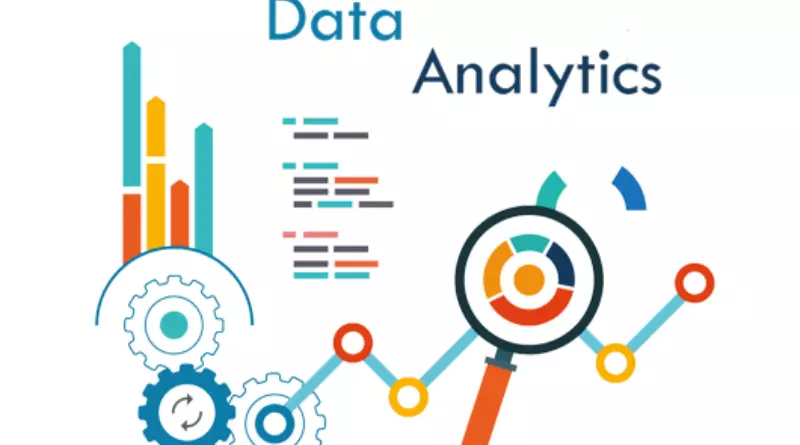Top 10 Data Analytics Jobs: Skills, Pay, and Career Opportunities

Explore the top careers in data analysis with these ten options. Learn about the skills required to begin your journey, as well as the potential salaries and career opportunities in these analytics roles.
If you’re thinking about a career in data analysis, you might be aware that jobs like data scientist, information security analyst, and statistician are among the fastest-growing occupations in the United States. However, the field of analytics offers a wide range of career options to explore.
In this guide, we’ll introduce you to ten of the top careers in the analytics field. We’ll delve into what each role entails, the skills you’ll need, the average salaries, and the potential for your career. Plus, we’ve gathered some recommended courses to help you kickstart your journey into data analysis.
Why Choose a Career in Data Analytics?
If you’re reading this article, you’re probably interested in a career in data analytics. You might have heard that it pays well and there are lots of job opportunities. While that’s true, there are more reasons why you should think about working in this field:
1.Diverse Job Options:
Data analytics has a wide range of job roles, like data scientists, business analysts, and data engineers. This means you can find a job that matches your interests and skills.
2.Exciting Technology:
In data analytics, you get to use the latest technology and tools to find insights in data. It’s both thrilling and challenging.
3.Make a Difference:
Working in data analytics lets you have a big impact. You help organizations make smart decisions based on data, which can really boost their success.
4.Career Growth:
As you gain experience, you’ll find opportunities to move up in your career. Many people start in entry-level positions and work their way up to management roles.
5.Job Security:
Data is becoming more and more important for businesses. So, the need for data analytics professionals is likely to keep growing, which means you’ll have job security in this field.
Top 10 Data Analytics Careers
If you’re interested in data analytics careers, there are various exciting options to consider. Let’s explore ten different roles in this field:
1.Data Scientist
•What They Do: Data scientists dive deep into data to find valuable insights.
•Responsibilities: Analyzing complex data, using statistics and machine learning to spot trends, and making predictions for businesses.
•Skills Needed: Background in computer science, proficiency in programming languages like Python and R.
•Average Salary: Around $102,988 in the US, depending on factors like location and experience.
•Career Outlook: Excellent, with a projected 36% job growth between 2021 and 2031.
2.Business Intelligence Analyst
•What They Do: Business intelligence analysts help organizations make data-driven decisions.
•Responsibilities: Collecting and analyzing data, creating easy-to-understand reports using tools like Power BI, Excel, and Tableau.
•Skills Needed: Background in business, experience with data warehousing and BI tools.
•Average Salary: Approximately $88,600 per year in the US.
•Career Outlook: Strong, with an 11% job growth projection from 2019 to 2029.
3.Data Engineer
•What They Do: Data engineers build and manage data infrastructure.
•Responsibilities: Designing data systems, ensuring data accuracy and security, using programming languages like Python and SQL.
•Skills Needed: Strong programming skills, familiarity with big data technologies like Hadoop and Spark.
•Average Salary: Around $115,000 annually in the US.
•Career Outlook: High demand, with data engineers being sought after.
4.Business Analyst
•What They Do: Business analysts identify and solve business problems.
•Responsibilities: Analyzing data, improving processes, and communicating with stakeholders.
•Skills Needed: Strong analytical and problem-solving skills, communication skills.
•Average Salary: Approximately $77,218 per year.
•Career Outlook: Strong, with a 25% growth prediction by 2030.
5.Marketing Analytics Manager
•What They Do: Marketing analytics managers use data to enhance marketing strategies.
•Responsibilities: Analyzing consumer behavior, optimizing marketing campaigns, and improving marketing efforts.
•Skills Needed: Strong analytical skills, proficiency in data visualization tools, and knowledge of marketing analytics.
•Average Salary: About $112,942 annually in the US.
•Career Outlook: Promising, with a growth trend similar to market research analysts.
6.Financial Analyst
•What They Do: Financial analysts use data to make informed business decisions.
•Responsibilities: Analyzing financial data, predicting outcomes, and creating forecasts.
•Skills Needed: Strong analytical skills, proficiency in financial modeling, and knowledge of tools like SQL, Excel, R, and Python.
•Average Salary: Approximately $73,135 per year in the US.
•Career Outlook: Strong, with a 9% job growth projection from 2021 to 2031.
7.Quantitative Analyst (Quant)
•What They Do: Quants use math and statistics to assist with financial decisions, often in areas like risk and portfolio management.
•Responsibilities: Modeling financial systems, identifying data patterns, and implementing quantitative investment strategies.
•Skills Needed: Strong analytical skills, a background in math or quantitative fields, and proficiency in programming languages like Python and R.
•Average Salary: Around $144,349 per year.
•Career Outlook: High demand, with over 15,000 quant jobs advertised in the US at the time of writing.
8.Risk Analyst
•What They Do: Risk analysts help organizations identify and manage potential risks.
•Responsibilities: Evaluating risks, developing risk management strategies, and communicating recommendations.
•Skills Needed: Strong analytical skills, experience in risk management, and knowledge of Python, R, and SQL.
•Average Salary: An average of $81,026 per year.
•Career Outlook: Strong, with the risk management market expected to grow significantly.
9.Data Governance Analyst
•What They Do: Data governance analysts ensure data accuracy and compliance.
•Responsibilities: Establishing data governance policies, ensuring data security, and communicating with stakeholders.
•Skills Needed: Strong analytical skills, experience in data governance and management, and knowledge of SQL, Python, and Java.
•Average Salary: Around $96,859 per year.
•Career Outlook: Strong, as data governance becomes increasingly vital.
10.Data Visualization Engineer
•What They Do: Data visualization engineers create visually appealing data representations.
•Responsibilities: Developing interactive data visualizations, using tools like Tableau and Power BI, and communicating with stakeholders.
•Skills Needed: Strong analytical skills, expertise in data visualization software and tools, and knowledge of Python, R, and various visualization technologies.
•Average Salary: Approximately $97,198 per year.
•Career Outlook: Strong, as data visualization is crucial for organizations to interpret large datasets.
Key Skills for Successful Careers in Analytics
Many analytics careers share common foundational skills. In addition to fundamental analytical, problem-solving, and communication abilities, you’ll need a range of technical skills. Here are some essential ones:
1.Programming Languages
•In the world of data analysis, proficiency in programming languages is crucial. You’ll often need to work with several programming languages.
•For instance, you might wonder whether to learn SQL or Python, but the reality is that both are valuable skills in analytics.
•Other languages like R and Julia are also commonly used by analysts. The choice depends on your specific career path.
•It’s a good idea to identify the most relevant language for your chosen field and start learning it. You can explore the top programming languages for data scientists in separate resources.
2.Data Visualization
•Being able to present your findings effectively is vital in analytics. To do this, you must be proficient in data visualization.
•While Python and R are often preferred for creating visualizations, tools like Tableau and Power BI are also valuable because they are commonly used in business settings.
Having these skills in your toolkit will greatly enhance your prospects in the field of analytics, regardless of your specific career path.





